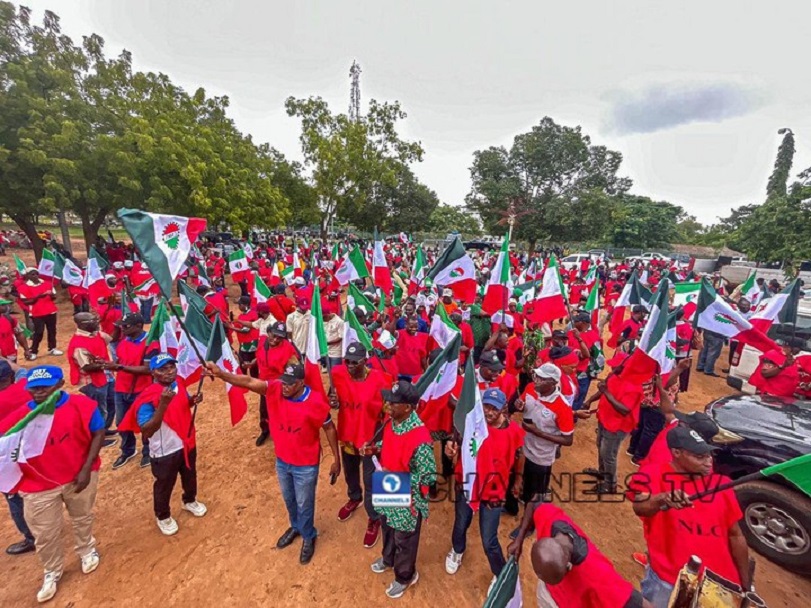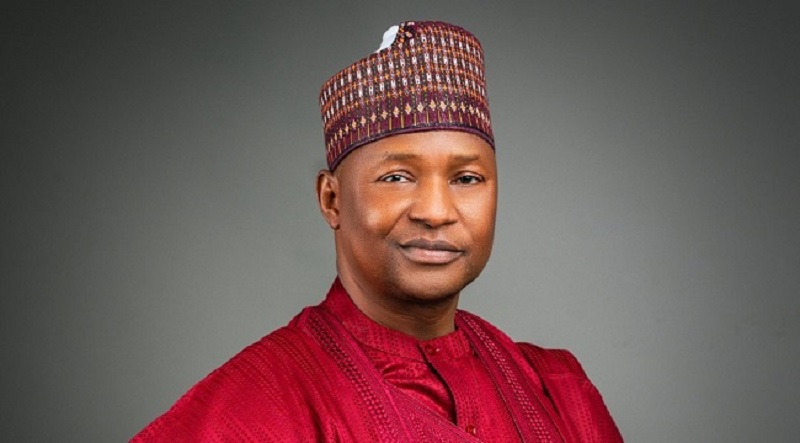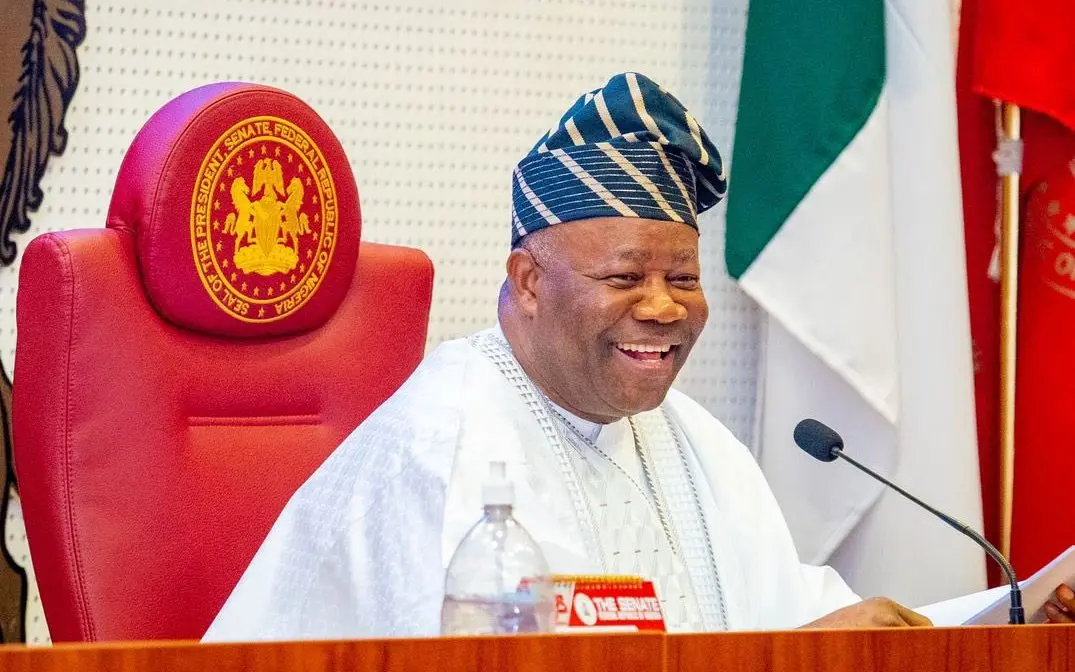General
Workers’ Day: NLC Decries Deteriorating Standard of Living of Nigerian Workers

By Adedapo Adesanya
The Nigeria Labour Congress (NLC) has outlined demands to the federal government while expressing deep concerns over the deteriorating economic conditions of workers as the world marks the International Workers’ Day (May 1).
NLC President, Mr Joe Ajaero, said Nigerian workers are groaning because of poor pay as a result of the economic policies of President Bola Tinubu as well as growing insecurity and political interference in labour affairs across the country.
Mr Ajaero described the current state of the Nigerian economy as hostile to workers, noting that the removal of fuel subsidy, Naira devaluation and rising inflation have plunged millions of households into deeper poverty.
He maintained that the current economic trajectory has eroded the value of wages, rendering workers helpless and unable to meet basic needs.
“It is clear that the policies of the government, particularly the ill-timed and unstructured removal of fuel subsidies and the floating of the Naira, have pushed Nigerian workers and their families to the brink,” he said.
The NLC president reiterated the labour union’s position on the new minimum wage, stating that N70, 000 is the barest minimum that workers can accept under the current economic conditions. He argued that the amount, though still insufficient considering the skyrocketing cost of living, could serve as a starting point for negotiation.
He lamented the increasing hunger facing workers in the country, “We are hungry,” he said, adding that, “The minimum wage cannot buy a bag of rice. If you are sincere and you go to work every day, 20 days, your salary is gone on transportation.
“We are not asking for luxury. We are simply demanding a wage that allows a worker to live a dignified life, pay rent, feed their families, send their children to school, and transport themselves to work.”
He said that even this figure would need to be adjusted periodically to keep pace with inflation and market forces.
“If the government can effectively implement some of the measures they have put in place -such as the N70, 000 minimum wage, the CNG transport system, and the students’ loan- then one can say that the renewed hope idea is working. I think the foundation has been laid, but we need the real implementation of these,” he stated.
On energy and transport, he criticised the government’s failure to deliver on the promised palliatives to cushion the effect of subsidy removal. He cited the delay in rolling out Compressed Natural Gas (CNG) infrastructure and vehicles, which was supposed to provide affordable alternatives to petrol-powered transportation.
“They promised us CNG buses. Where are they? They promised wage awards. Many states have not implemented anything. The promises made last year have remained largely on paper,” he said.
He called on the Federal Government to accelerate the implementation of energy reforms, especially in the transportation sector, to alleviate the burden on workers who spend a significant portion of their income on transportation.
Mr Ajaero also raised concerns over the inconsistencies in salary payments and implementation of wage awards across various states and federal agencies.
He noted that many state governments have either failed to implement the approved wage increases or are paying workers below the agreed minimum wage, thereby violating labour agreements.
He pointed out that the disparities in the federal and state public service salary structures were unacceptable and called for immediate harmonisation, including a review of salary step progression and grade levels to ensure equity.
The NLC president further urged the government to reform the country’s tax regime, which he said unfairly targets the poor while allowing multinational corporations and political elite to evade taxes.
“It is only in Nigeria that someone earning N50, 000 a month is taxed heavily while the real billionaires are not paying their fair share. This system must change,” he said.
Additionally, the labour leader condemned the growing state of insecurity in many parts of the country, which he said not only affects productivity but, also, endangers the lives of workers, especially those in rural communities and high-risk professions.
He also criticised the decay in the health and education sectors, lamenting that many workers can no longer afford basic healthcare or quality education for their children. Turning to internal challenges within the labour movement, he decried the increasing political interference in union activities, particularly in Rivers and Edo states.
He accused state governors of undermining the autonomy of the trade unions, suppressing workers’ voices, and in some cases, promoting parallel union leadership to create division.
“In Rivers State, we are witnessing a complete breakdown of labour-government relations. Retirees are not being paid, union meetings are disrupted, and workers’ rights are trampled upon. In Edo, we are dealing with a crisis of leadership instigated by the state government,” he alleged.
He urged the federal government to call erring state governors to order and protect the rights of workers as enshrined in the Constitution to prevent the escalation of events in those states. He further stated the status of no May Day celebrations in the states still stands. He challenged the government to prioritise social services in its spending plans and cut waste in governance.
General
Nigeria Okays Alphanumeric Digital Postcode System to Boost Delivery

By Adedapo Adesanya
Nigeria has finally approved the use of an alphanumeric digital postcode system for the country, 17 years after it was first considered.
According to the Minister of Communications and Digital Economy, Mr Bosun Tijani, the system was okayed at the Federal Executive Council (FEC) meeting on Wednesday, chaired by President Bola Tinubu, in line with the ministry’s strategic blueprint.
He said working in collaboration with the Nigerian Postal Service (NIPOST), the ministry will introduce a modern, geospatially intelligent addressing system that improves accuracy across the country and enables faster and more reliable mail and parcel processing.
“Beyond strengthening postal operations, the Digital Postcode System will also serve as an important national enabler supporting better national planning, improved emergency response, more efficient logistics and e-commerce, and the delivery of government services.
“As our digital economy continues to grow, foundational systems such as this play an essential role in building the infrastructure required to connect people, businesses, and services more efficiently across the country,” he said.
He noted that the approval represents another step forward in the Mr Tinubu-led administration’s commitment to building the enabling environment to support a modern, inclusive, and globally competitive digital economy.
On her part, Ms Tola Odeyemi, the Post Master General and chief executive officer of NIPOST, said the implementation is a foundational step toward building the digital infrastructure required for a modern economy.
“First conceptualised in 2009, this initiative is finally becoming a reality in 2026 under the leadership of President Bola Tinubu and the Minister of Communications, Innovation and Digital Economy, Dr Bosun Tijani,” she wrote on X, formerly Twitter.
“A digital postcode system is more than a postal reform. It is critical national infrastructure that enables e-commerce, logistics, emergency services, financial inclusion, security, urban planning, and effective public service delivery,” she added.
By introducing an alphanumeric addressing framework, Nigeria will now be able to identify locations with far greater precision across cities, towns, and rural communities.
“This will significantly improve how goods, services, and digital platforms reach Nigerians everywhere.
“This milestone reflects a shared commitment by the Federal Government to strengthen Nigeria’s digital backbone and unlock new opportunities for innovation, commerce, and national development,” she further stated.
General
NCDMB Targets Midstream Compliance to Boost Nigeria’s Industrial Growth

By Adedapo Adesanya
The Nigerian Content Development and Monitoring Board (NCDMB) has intensified its compliance drive in the oil and gas midstream segment, convening a high-level sensitisation workshop aimed at deepening adherence to the Nigerian Oil and Gas Industry Content Development Act.
The workshop, themed Compliance with the Provisions of the NOGICD Act 2010: A Pathway to Industrialization, held in Lagos, drew key operators across gas processing, transportation, storage and infrastructure development.
Speaking on behalf of the Executive Secretary of NCDMB, Mr Felix Ogbe, the Director of Monitoring and Evaluation Division, Mr Omomehin Ajimijaye, described the midstream sector as “a critical bridge between upstream production and downstream utilisation.”
“The midstream segment plays a pivotal role in gas processing, transportation, storage and infrastructure development, all of which are essential pillars for achieving Nigeria’s industrialisation agenda,” Mr Ajimijaye said.
Mr Ajimijaye stressed that adherence to the NOGICD Act goes beyond regulatory obligation.
“Compliance with the NOGICD Act is not merely a statutory requirement,” he stated. “It is a strategic imperative for sustainable national development.”
He explained that the programme was structured to clarify registration processes, Nigerian Content Equipment Certification, expatriate quota requirements, statutory reporting templates and submission timelines.
“Our objective is to deepen stakeholders’ understanding of compliance requirements, address recurring gaps identified during Monitoring and Evaluation reviews, and foster constructive dialogue on operational realities within the midstream space,” he added.
According to Mr Ajimijaye, the board has received feedback from operators highlighting challenges in meeting Nigerian Content obligations, including reporting complexities and varying interpretations of certain provisions of the Act.
“As a responsive regulator and development-focused institution, we remain committed not only to enforcing compliance but also to providing guidance, clarity and the necessary support to enable stakeholders succeed,” he assured participants.
With Nigeria positioning gas as a transition fuel and economic growth driver, regulatory clarity in the midstream space is essential to unlocking investment and local capacity development.
The participants received technical presentations from key NCDMB divisions, including: Monitoring and Evaluation Division, Project Certification and Authorisation Division, Capacity Building Division and Zonal Coordination Division.
The interactive sessions provided practical guidance on engagement protocols with the Board and strengthened collaboration between regulators and operators.
General
AGF Fagbemi Takes Over Malami Prosecution from DSS

By Adedapo Adesanya
The Minister of Justice and Attorney General of the Federation, Mr Lateef Fagbemi, has taken over the prosecution of his immediate predecessor, Mr Abubakar Malami.
Mr Malami is facing terrorism and illegal firearms possession charges brought against him by the Department of State Service (DSS).
Mr Fagbemi, a Senior Advocate of Nigeria (SAN), took over the trial from the secret police on Wednesday at the Federal High Court in Abuja.
The Director of the Public Prosecution of the Federation, Mr Rotimi Oyedepo, announced the Attorney General’s appearance in the matter.
Mr Oyedepo told Justice Joyce Abdulmalik that the trial cannot proceed because Mr Fagbemi has just taken over the prosecution.
He informed the court that the prosecution needed more time to familiarise itself with the facts of the case.
Counsel to the defendants, Mr Adedayo Adedeji, who did not oppose the application, however, urged the court to strike out the matter if the prosecution fails to open its case at the next adjourned date, citing lack of diligent prosecution.
Justice Abdulmalik subsequently adjourned the matter to March 10 for trial and for the prosecution to formally open its case.
The court had, on February 27, admitted Malami and his son, Mr Abdulaziz, to N200 million bail, with two sureties, each one of whom must own landed property either in Maitama or Asokoro.
Justice Abdulmalik had said that the title of the property must be deposited with the Deputy Chief Registrar of the Court along with valid international passports.
The sureties were also ordered to depose to an affidavit of means and submit their two recent passport photographs to the court.
Mr Malami and his son were also ordered to submit their international passports and recent passport photographs to the court.
The DSS had arraigned the ex-AGF and his son, Mr Abdulaziz, on a five-count charge bordering on terrorism and illegal firearms possession.
In the charge, marked FHC/ABJ/CR/63/2026, filed before the Federal High Court in Abuja, Malami is also accused of refusing to prosecute suspected terrorism financiers, whose case files were handed to him while he served as the AGF and Minister of Justice.
Mr Malami and Mr Abdulaziz are equally accused of warehousing firearms in their residence at Gesse Phase II Area, Birain Kebbi LGA, Kebbi State, without lawful authority.
The DSS accused Mr Malami in count one of the charge, with knowingly abetting terrorism financing, while the ex-AGF and his son are charged in counts two to five, with unlawful, possession of a Sturm Magnum 17-0101 firearm, 16 Redstar AAA 5720 live rounds of cartridges and 27 expended Redstar AAA 5’20 cartridges, contrary to and punishable under relevant Sections of Terrorism (Prevention and Prohibition) Act, 2022 and Firearms Act, 2004.
-

 Feature/OPED6 years ago
Feature/OPED6 years agoDavos was Different this year
-
Travel/Tourism10 years ago
Lagos Seals Western Lodge Hotel In Ikorodu
-

 Showbiz3 years ago
Showbiz3 years agoEstranged Lover Releases Videos of Empress Njamah Bathing
-

 Banking8 years ago
Banking8 years agoSort Codes of GTBank Branches in Nigeria
-

 Economy3 years ago
Economy3 years agoSubsidy Removal: CNG at N130 Per Litre Cheaper Than Petrol—IPMAN
-

 Banking3 years ago
Banking3 years agoSort Codes of UBA Branches in Nigeria
-

 Banking3 years ago
Banking3 years agoFirst Bank Announces Planned Downtime
-

 Sports3 years ago
Sports3 years agoHighest Paid Nigerian Footballer – How Much Do Nigerian Footballers Earn















